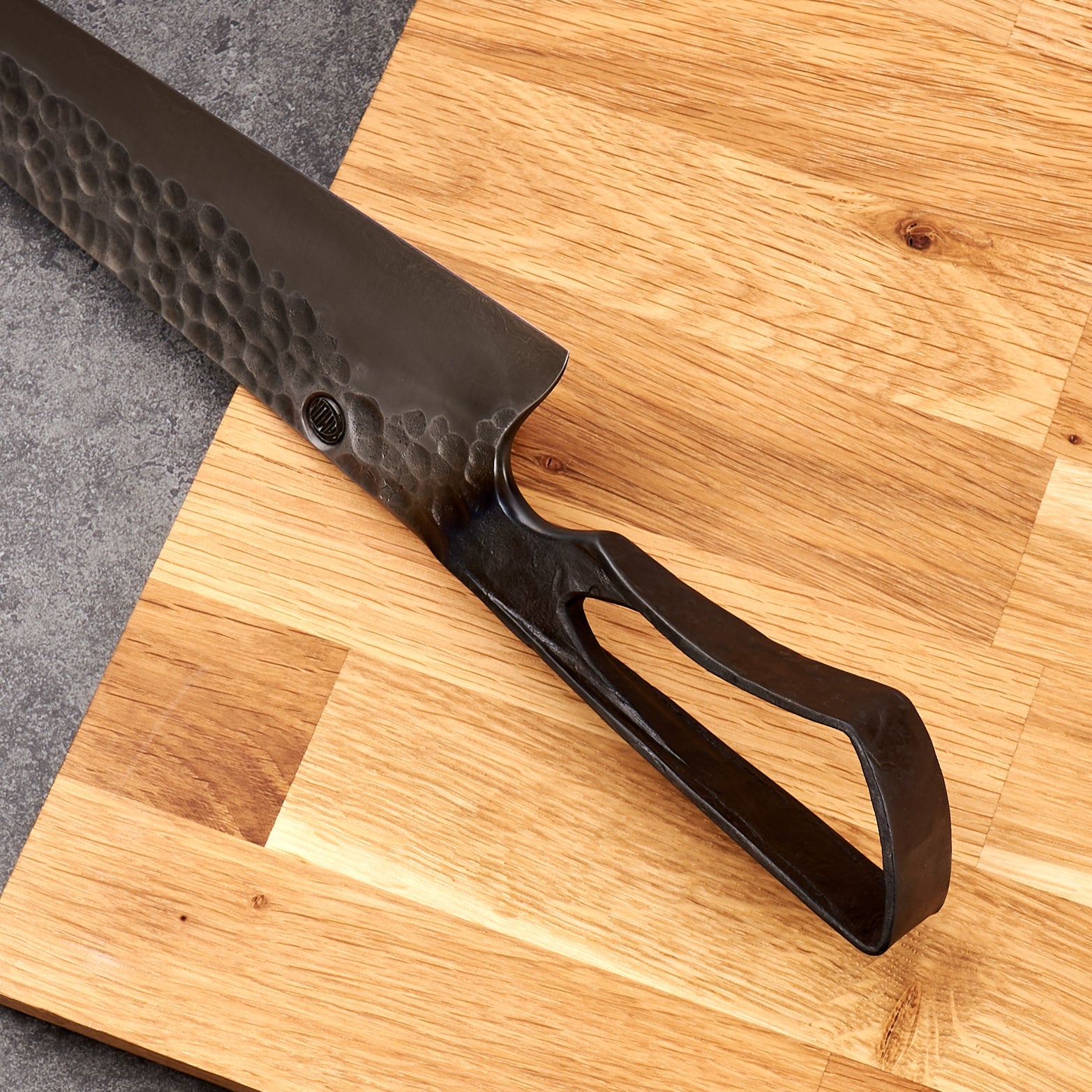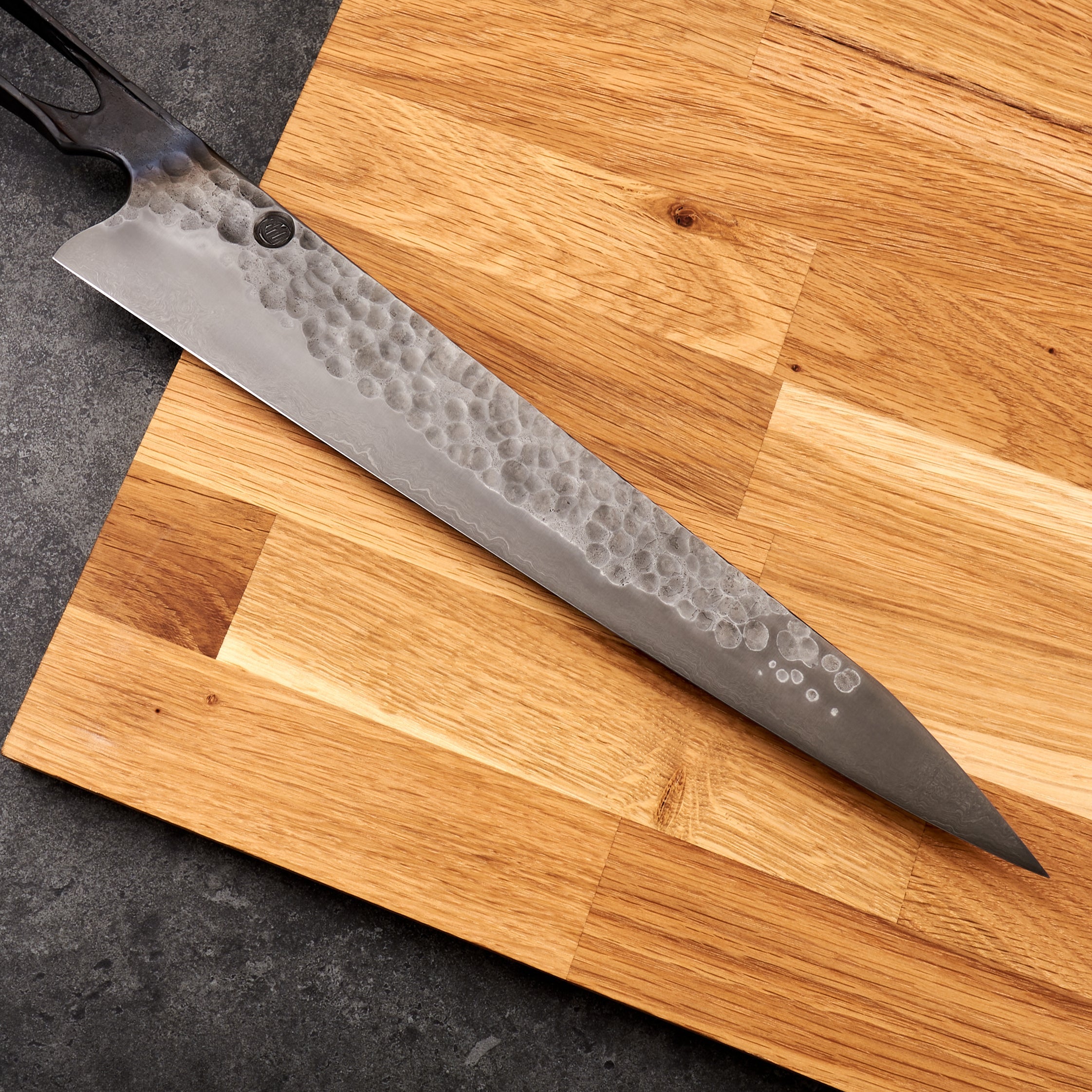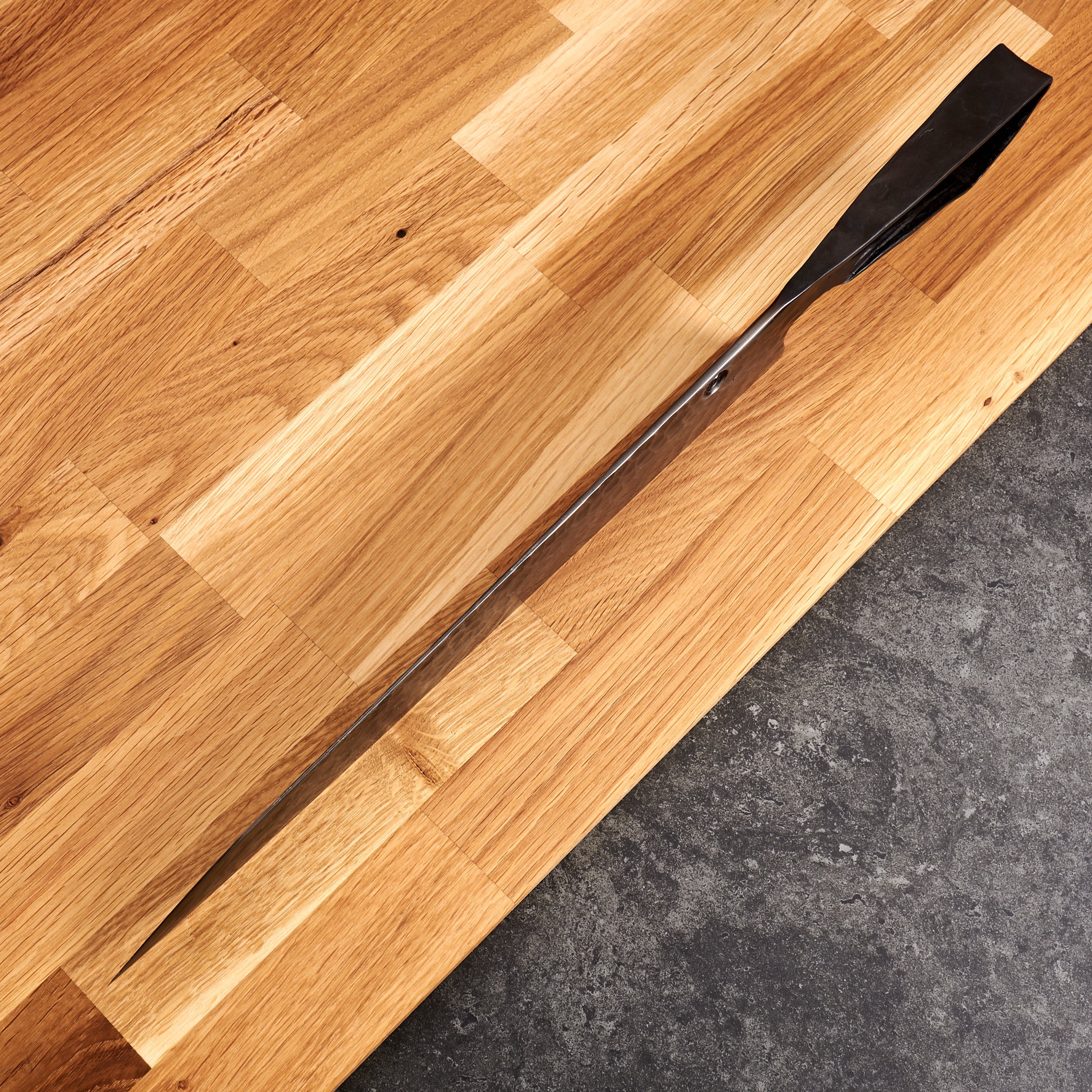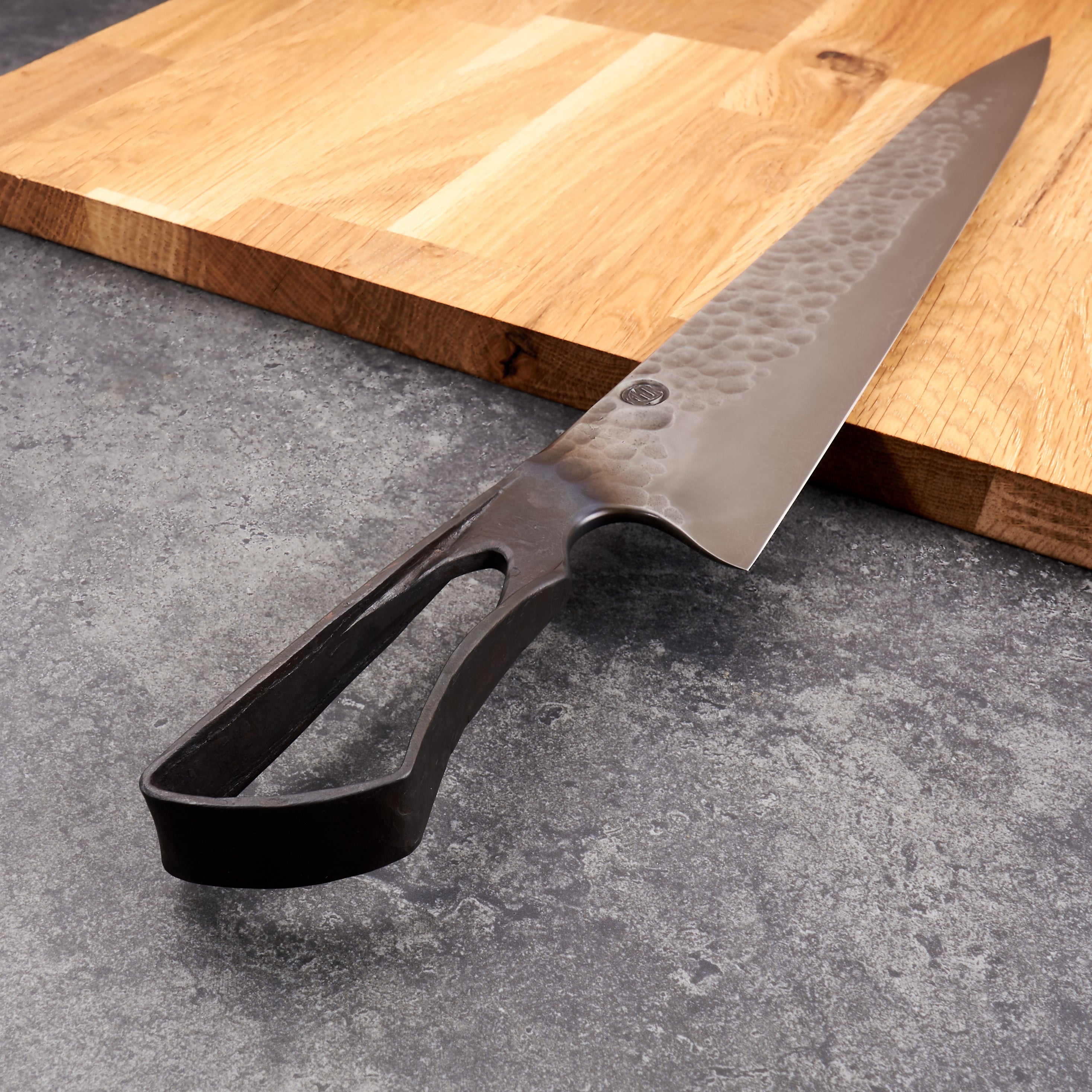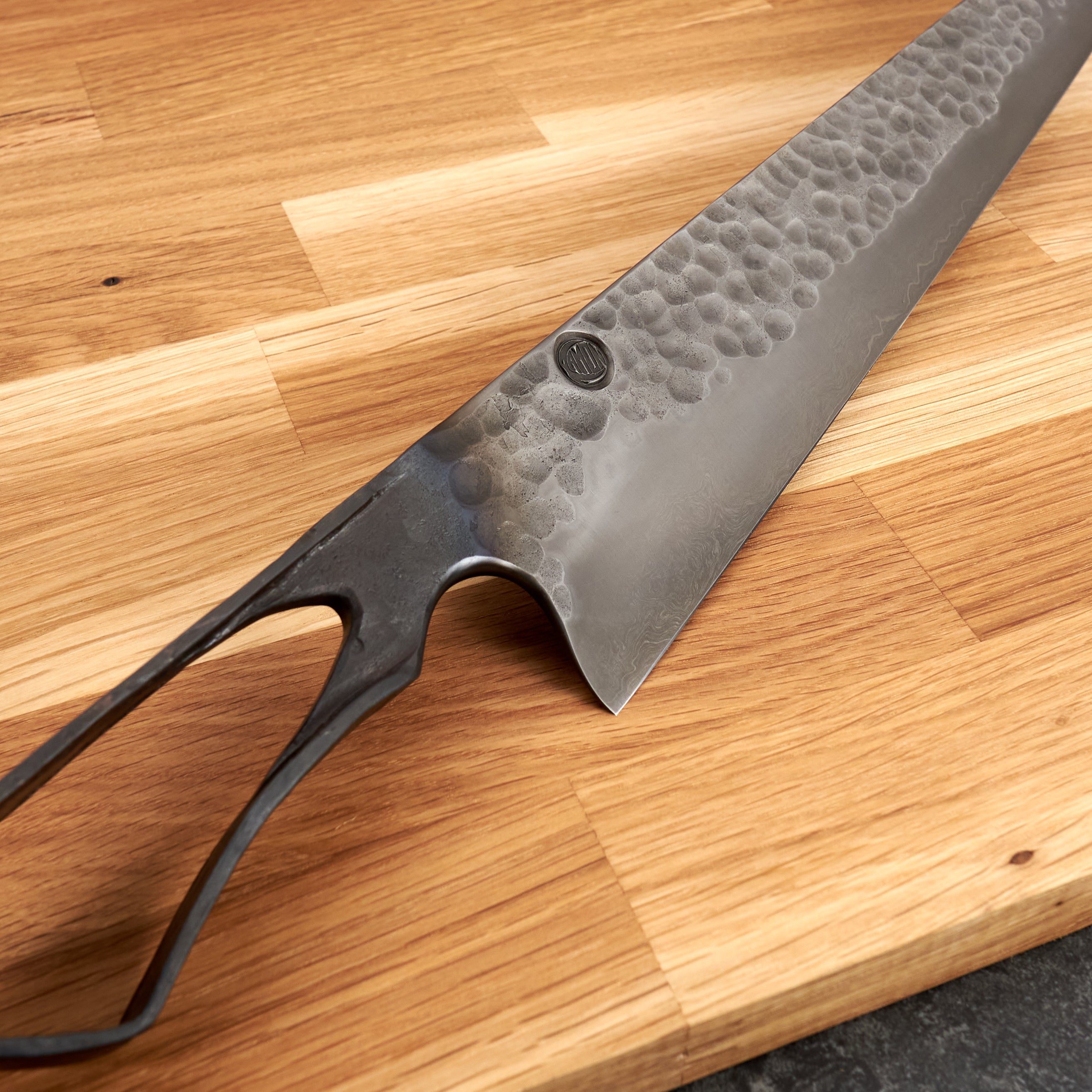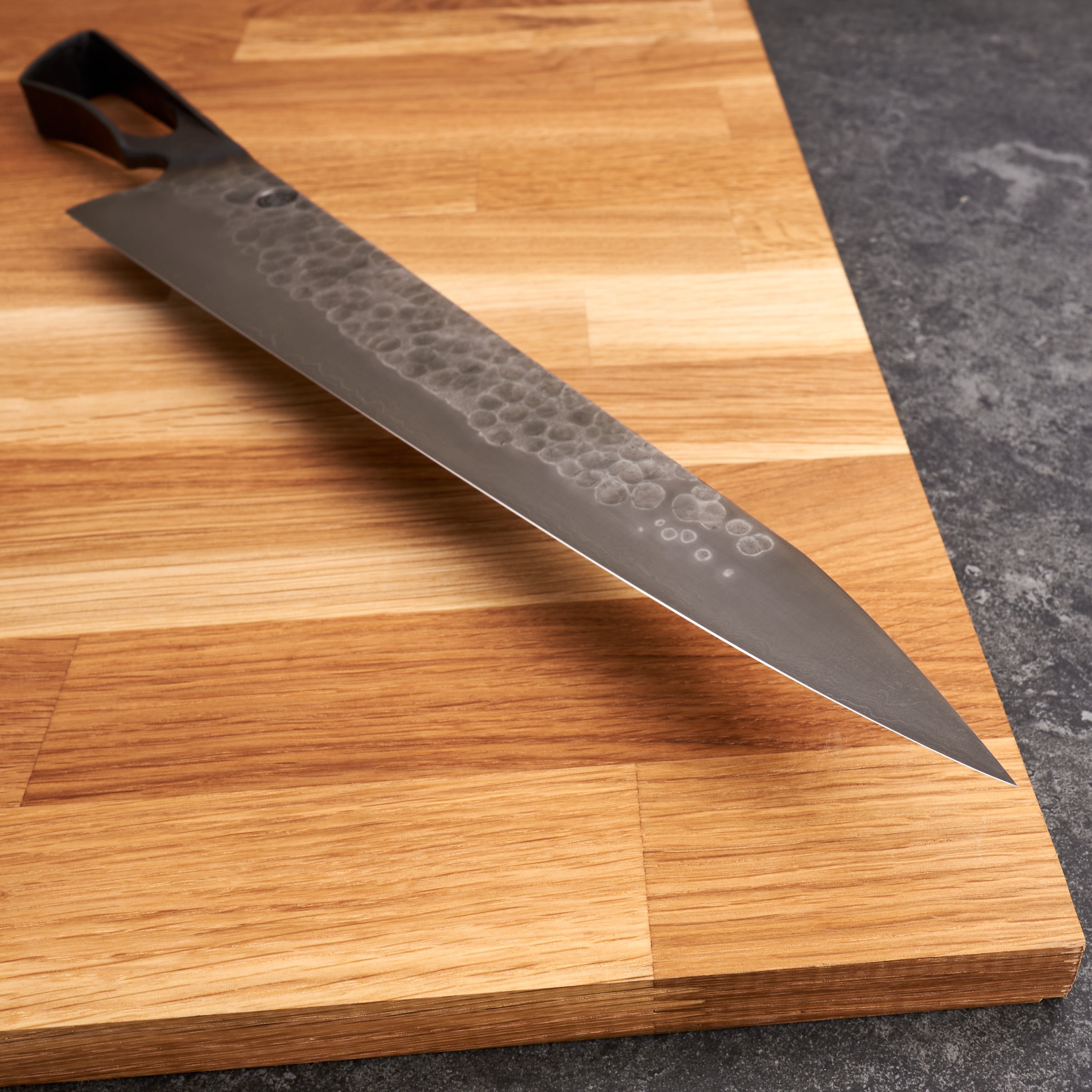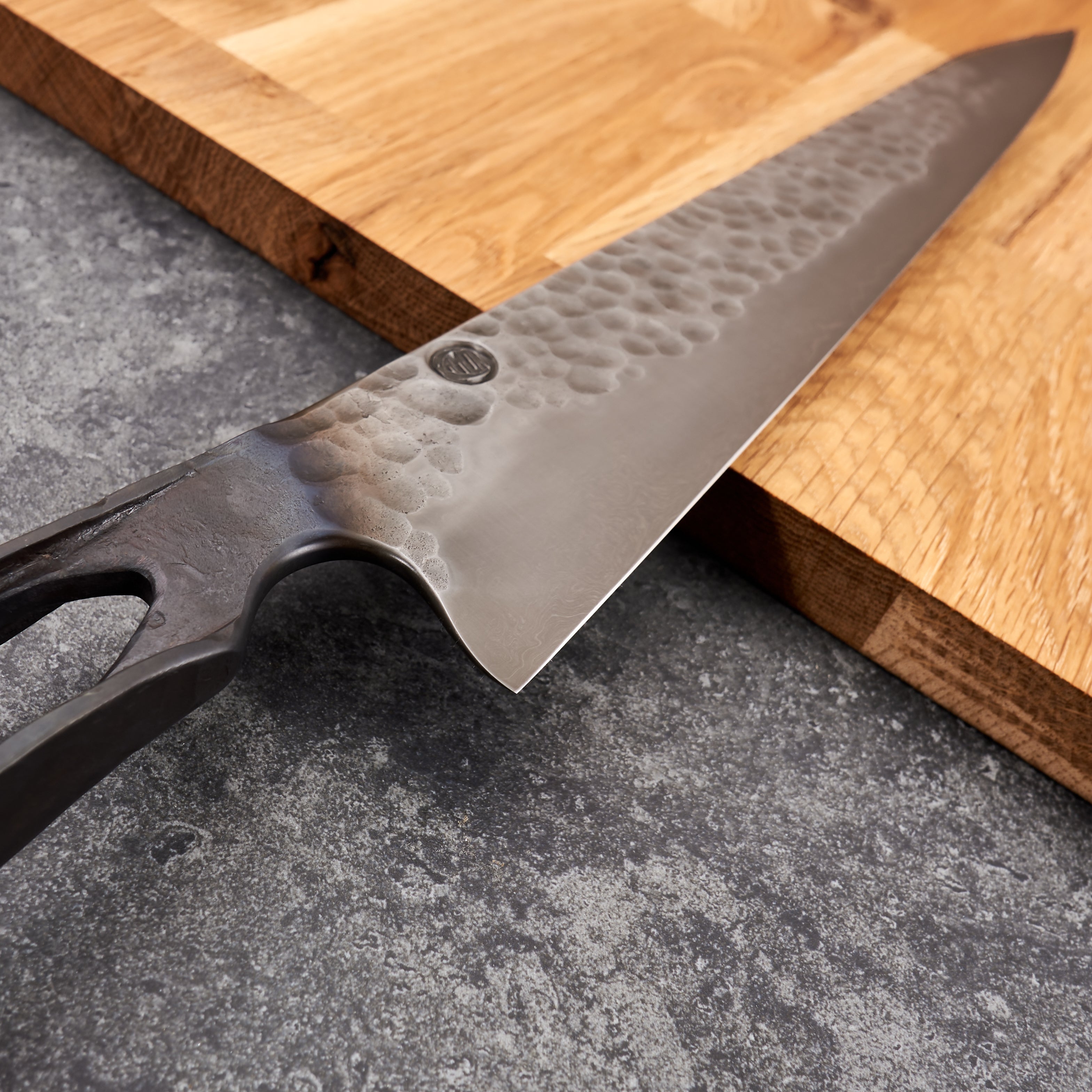Sujihiki 315mm Monolithic Denty Black Out "Kara At"
“Kara At” translates, from Turkish, to Black Horse. The name was inspired by the dark gothic finish of the blade and as a salute to the rich steel and sword making history of the Turkish people. It’s well known that Wootz, crucible steel, has its origins in Damascus, Turkey and that the steel was famous for its incredible toughness and sharpness, but also for the beautiful alloy banding patterns visible on its surfaces. This incredible blade forged in 1.2519 German steel, by Benjamin Kamon, also features some of the most amazing alloy banding patterns along the primary bevels.
This is certainly not the first forged integral handle, “Monolithic”, that we have seen from Benjamin, but it’s important highlight that in its simplicity it might be easy to overlook or perhaps forget the incredible amount of skill required of blacksmith to produce such clean lines. If you are looking at this piece with the serious intention of buying it perhaps you have done some forging, even made a knife or two and if so, you will have a serious appreciation for the challenges of moving and shaping steel with such precision.
Textured with Benjamin’s signature “Denty” texture, a touch of blue/purple tempering around the ricasso and the “Black Out” acid etched forced patina. These iconic, stylistic details combined with some of the most cutting edge steel hardening and shaping techniques come together and result in a precision cutting tool unlike anything else.
Product Specification
Blade Type: Sujihiki
Overall length:
Edge Length: 315mm
Spine Heel: 5.2mm
Spine Mid: 1.95mm
Spine Tip (20mm before): 85mm
Blade Height: 54.45mm
Weight: 276g
Cutting Edge Steel: 1.2519
Stainless: No
HRC: 65
Blade Construction: Mono Steel
Blade Finish: Textured and Acid Etched (Forced Patina)
Grind: Walkschliff
Handle Construction: Integral
Handle Materials: 1.2519 Steel
Handedness: Ambidextrous
Saya, Hand Crafted Storage or Display Included: Yes
Shipping & Returns
Shipping
We process orders 5 days a week (Monday - Friday) and ship from our shop in Sydney, Australia. We ship with FedEx, UPS and DHL.
We are happy to offer free international shipping on a variety of orders depending on location and order value. You can check to see where things sit for you below.
Free Shipping Regions and Minimum Order Values
The service provided is at our discretion, but these values have been calculated based on our shipping rates.
For Australia and New Zealand the minimum is $500AUD for the rest of the world it is approximately €1000EUR. The discount is applied automatically when you reach the minimum cart value and will be applied at checkout. It is approximately a 5% discount :)
Returns
At Modern Cooking, we want you to be inspired and delighted by your purchases. However, we understand that sometimes a return is necessary. This policy is in addition to your rights under the Australian Consumer Law.
Standard Returns (Change of Mind)
If you're not entirely happy with your purchase, you can return it within 14 days of delivery for a refund. The item must be in its original condition with all original packaging.
To start a return, please log into your customer account and process the request, or send us an email and we'll be happy to assist you. Please note that all returns are subject to our approval.
- Returns are accepted for 14 days.
- The customer is responsible for return shipping costs.
- A 15% restocking fee may be applied to returns for change of mind.
- We do not accept returns on second-hand items for change of mind.
What if my item is faulty or damaged?
In the unlikely event that your order arrives faulty or is damaged in transit, we're here to help. Your purchase is protected by the Australian Consumer Law.
- You must notify us within 5 business days of receiving your order to be eligible for a return or replacement. All of our logistics partners provide insurance, but it's only valid if we are notified within this timeframe. Please inspect your order immediately upon receipt.
- You will need to provide photographic evidence of the damage.
- Once approved, Modern Cooking will cover the costs of return shipping.
After we receive the damaged goods, we will issue a full refund or send a replacement, whichever you prefer.
Why do I have to pay tariffs and duties?
Tariffs and duties are taxes imposed by the destination country's government on imported goods. These charges are not set by our company but are determined by your country's customs agency. The specific amount can vary based on the item's value, type, and the country it's being shipped to.
What happens if I refuse to pay tariffs and duties?
When you place an international order with us, you are responsible for paying any tariffs and duties that your country's customs agency may charge. If you refuse to pay these fees and the package is returned to us, please be aware that we will deduct all shipping costs from your refund, including the original shipping to you and the return shipping back to us. Additionally, a 15% restocking fee may be applied to cover the costs associated with the return and processing of the item.
We strongly encourage you to understand your country's import regulations and be prepared for these potential fees before placing your order. This will help you avoid any unexpected charges and ensure a smooth delivery process.
Product Care:
Cleaning: Clean by hand with warm water. Avoid wetting the handle when possible.
Sharpening: We advise using whetstones to sharpen your knives and a honing rod or steel to maintain the burr between sharpening sessions.
Reactive Steels: Reactive steels like Aogami Super, Apex Ultra or one of the many premium reactive German and Swedish steels are susceptible to rust if not properly cared for. In this case we advise that you keep the knife dry between uses and when storing the knife for longer periods wiping the knife blade with Tsubaki oil or another food safe oil is a wise choice. This will not stop a patina forming on the blade, but it will stop rust. A patina can be a beautiful personal feature on your knife and helps to stop rust forming. So, dry your knife regularly between uses, store in a dry place and apply some Tsubaki oil from time to time when storing for long periods.
A reference guide to steel types
Handle Care: If you have a knife with a non-stabilised wooden handle, you can apply Tsubaki oil or another food safe oil to your handle from time to time. Food safe wax can be applied to both stabilised and no-stabilised wooden handles. Never apply hot wax or oil as you risk warping or damaging the handle.


